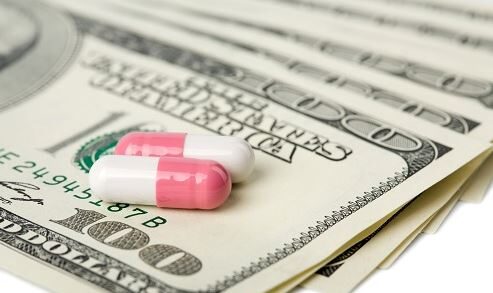© 2024 CSRXP- All Rights Reserved

SECOND OPINION: BIG PHARMA TROTS OUT BOGUS R&D DEFENSE TO OPPOSE TAX
Aug 9, 2021
Remembering Drug Companies Spend Their Profits on Shareholders and Marketing — And Price Hikes Are Unrelated to Innovation
A recent Wall Street Journal article, “Big Pharma Quietly Pushes Back on Global Tax Deal, Citing Covid-19 Role,” notes brand name drug companies have been deploying the industry’s most favored argument against that proposal, that such a measure would cut into the industry’s ability to invest in research and development (R&D).
Regardless of the merits of that proposed policy, Big Pharma’s rhetoric warrants correcting.
Big Pharma has long used the same excuse to justify out-of-control prescription drug prices and oppose solutions to lower prices for American patients. These tired arguments, which Big Pharma wields like a shield to protect the industry’s anti-competitive and price-hiking practices, simply don’t hold up to scrutiny.
In early July, the U.S. House Committee on Oversight & Reform released a report examining financial data from 14 of the largest branded drug makers in the world. The report found that between 2016 and 2020 brand name drug companies spent $577 billion on stock buybacks and dividends, $57 billion more than they did on research and development (R&D).
A 2019 study from the Campaign for Sustainable Rx Pricing (CSRxP) found Big Pharma spends more on advertising, corporate overhead and profits than R&D by a margin of more than two to one.
What Big Pharma also leaves out, is that pharmaceutical R&D is heavily subsidized by American taxpayers. The federal government helped fund research into every single one of the 210 new drugs approved by the U.S. Food and Drug Administration (FDA) between 2010 and 2016. The National Institutes of Health (NIH) spent more than $100 billion on research that either directly or indirectly contributed to the 210 drugs approved in that same time span.
The industry also showcased where its priorities for additional revenue truly lie following the industry’s windfall from the Tax Cuts and Jobs Act of 2017. Brand name prescription drug manufacturers chose to line shareholders’ pockets, rather than invest in R&D. That year, the single-year increase in dividends and stock buybacks was 17 times larger than the increase in R&D spending.
And while the industry has been hiding behind the rhetorical shield of R&D or “innovation,” it has been continuing to boost profits by price-gouging American patients.
For instance, Big Pharma giant Pfizer, identified in the recent Wall Street Journal article as paying a particularly low effective tax rate, recently raised its guidance for the year and announced it expects to make in the range of $78 billion to $80 billion in revenue by the end of 2021 after repeatedly hiking drug prices during the pandemic.
Pfizer increased prices on more than 130 drugs in the company’s portfolio in January 2021, including 20 price hikes of five percent or greater. These included drugs for serious conditions, like the company’s cancer drug Ibrance which has experienced five percent price hikes for three consecutive years. Pfizer also hiked drug prices more than 125 times in 2020.
Big Pharma has hiked prices on 66 brand name drugs in July of this year, as part of traditional biennial price hikes.
Policymakers must see through Big Pharma’s bogus innovation rhetoric and advance bipartisan, market-based solutions that hold brand name drug makers accountable and lower prescription drug prices.
Learn more about how Big Pharma’s rhetoric on innovation and drug prices doesn’t add-up HERE.
Learn more about solutions to hold Big Pharma accountable and lower drug prices HERE.
